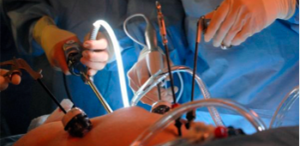
If you struggle with obesity, bariatric surgery is an excellent way to shed pounds and kick start a healthier, more mindful lifestyle. If you have recently undergone a weight loss procedure, you may be asking yourself: “Can I eat carbs at all?” or, “How many grams of carbs does my body need per day?” Carbs after bariatric surgery can be a controversial topic. At LIMARP® International Center of Excellence for Obesity, serving Tijuana, MX and San Diego, CA, Dr. Liza María Pompa González can help you stay on track following your weight loss surgery so you can enjoy a healthier, happier life.
What Are Carbohydrates?
Put simply, carbs fuel the body and bring energy to the cells. After consuming carbs, the body breaks them down into sugars. These sugars are then utilized by the muscles and other parts of the body for proper function.
Types of Carbohydrates
Before discussing how many carbs per day should be consumed, it is important to understand the different types of carbs. There are two kinds, including:
- Simple Carbohydrates: This type of carb includes products such as table sugar, brown sugar, and high-fructose corn syrup. Most processed foods, sodas, and baked goods have an excessive amount of simple carbs.
- Complex Carbohydrates: This type of carb includes foods like fruits, vegetables, whole grains, beans, and nuts. These items are rich in fiber, aiding in the digestive process.
Why Are Carbohydrates a Concern after Bariatric Surgery?
When you undergo bariatric surgery, the size of your stomach is decreased. Therefore, portions must be smaller, and your choices must be healthier. By providing your body with nutrient-rich foods, you can preserve muscle and maintain overall wellness.
Choosing Carbs Wisely
A diet consisting of simple carbs can lead to a spike – and sudden dip – in blood sugar, resulting in lethargy and fatigue. After consuming simple carbs, the body secretes insulin irregularly and unpredictably, which could eventually result in type two diabetes.
Following bariatric surgery, it is best to avoid simple carbs and consume complex carbs. Foods that are high in carbohydrates, fat, and sugar will result in weight gain. However, foods that are high in fiber offer several benefits, such as keeping you regular and helping you feel fuller for longer. Additionally, high fiber carbs help stabilize your blood sugar, keeping your energy up and reducing your sugar cravings. It must be noted that consumption of complex carbohydrates must be limited, as excess amounts can lead to weight gain.
Maintaining Your Progress
Depriving yourself is not a necessity following bariatric surgery. You can still have foods you crave and love, but they should be consumed in moderation. By trading simple carbs for complex carbs, you will be well on your way to a healthier, more enjoyable life.
As with any medical procedure, it is important to follow all guidelines and recommendations set by your doctor. Because each patient has different needs, post-treatment instructions may vary for every person. Aside from eating a balanced, nutritious diet, it is important to attend scheduled follow-ups as well, so your doctor can monitor your progress.
Learn More about Bariatric Surgery for Weight Loss
If you would like to learn more about carb intake after your weight loss surgery, schedule a consultation at our practice. You can contact us online or call our office at (866) 313-5750.


